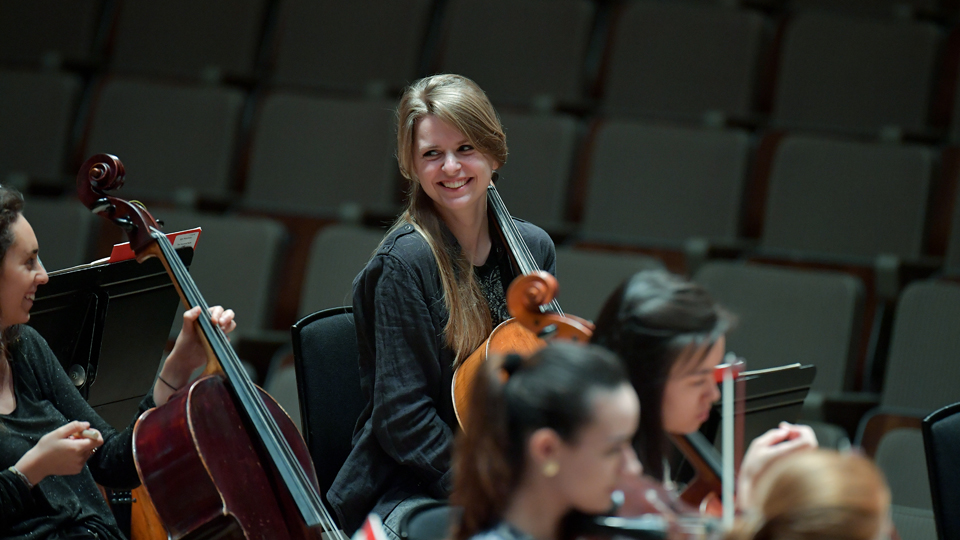The time shown on UCAS Conservatoires is your audition time. You should plan to arrive at the RCM at least 30 minutes before this, to allow time to check in and warm up. We advise allowing plenty of extra time for travelling into or across London.
If you are caught in an unavoidable delay, please telephone the Admissions team on +44 (0)20 7591 4362 immediately so that, wherever possible, alternative arrangements can be made.
When you arrive at the RCM, you should find out from the steward in the entrance hall where your audition will take place.
Strings auditions last approximately 20 minutes. Candidates will be directed by the panel to perform their audition pieces or particular extracts. We cannot say in advance which extracts you might be asked to perform, so you should prepare all of the materials in full. You will be required to take a sight-reading test and there will be a short interview. Typical interview questions may include:
- Why do you want to study at the RCM?
- What are your musical interests?
- What do you think you need to do most to improve your playing?
In some cases you may also be asked to perform scales, arpeggios or other technical exercises.
Due to the volume of applicants, there is a two-phase audition process for violin, viola and cello candidates auditioning in London during the main November–December audition period. Some candidates will be referred to a second panel, which is held later the same day. However, candidates who are referred should not assume they are definitely being offered a place. Similarly, if you are not referred, please do not assume you have been unsuccessful.
Harpists who are unable to bring their own instrument will be able to use an RCM harp. There is no need to notify us in advance if you require this; just inform the steward for your audition panel on arrival.
You will have 20 minutes of warm-up time with your accompanist prior to your audition. We are not able to provide practice rooms for you to use before this.
You are welcome to bring your own accompanist. Alternatively, the RCM will have accompanists available on the day of your audition. We usually have several accompanists working on each audition day. We are unable to provide the name or contact details of our accompanists in advance.
If you require an RCM accompanist you do not need to tell us in advance; just inform the steward for your audition panel when you arrive.
You do not need to tell us what you are performing in your audition and please do not send copies of the music in advance. Our accompanists are very experienced and are familiar with most standard repertoire.








